Sometimes, I don’t see what’s right in front of me.
That realization hit me yesterday as I grappled with a tangle of emotions I couldn’t quite name—sorrow, helplessness, loss. And then it dawned on me: I was grieving, and I hadn’t recognized it.
Grief isn’t always about what’s gone; sometimes, it’s about what might be lost. It’s the reckoning that comes with change, uncertainty, and the weight of an unknown future.
In her book, On Death and Dying (1969), Elisabeth Kübler-Ross introduced the five stages of grief:
Denial – shielding ourselves from pain by refusing to fully accept reality.
Anger – questioning, raging, demanding answers from the universe.
Bargaining – trying to negotiate our way out of suffering.
Depression – the heaviness of sorrow settling in.
Acceptance – learning to live alongside grief, rather than trying to outrun it.
These stages don’t follow a straight line, nor does everyone experience them all. Looking back, I see how denial had crept into my life. The anger? That was evident in how much I cursed at the evening news. And depression? Some days, it presses down with an unrelenting weight.
Here’s what I’ve learned: grief doesn’t just disappear. If we ignore it, it dogs us like a shadow. If we surrender to it completely, it can devour us. Kubler-Ross wasn’t saying we “move on” from grief; she was showing us that we learn to carry it, so that it sits beside the love in our hearts, and weaves its way into our resilience.
When I find myself lost in grief, I have a “go-to” book that I often turn to for inspiration: Man’s Search for Meaning by Viktor Frankl. Frankl was a young psychiatrist imprisoned in Nazi concentration camps, who sought to understand why some people found the will to survive while others gave up and lost hope. Meaning, he concluded, is what can sustain us.
According to Frankl, we can find meaning through:
Work or creative pursuits – engaging in something larger than ourselves.
Love and relationships – anchoring ourselves in deep connections.
How we respond to unavoidable suffering – choosing our perspective, even in hardship.
Frankl’s message is simple yet profound: suffering is inevitable, but we can choose our response. We can find meaning in the darkest of times.
Revisiting the Kubler-Ross paradigm for the stages of grief, along with Viktor Frankl led me to something else I find valuable in difficult times —ritual.
With the exception of birthdays, weddings, funerals and anniversaries, our culture doesn’t emphasize personal rituals. Some may believe they’re just superstitious nonsense, while others may feel uncomfortable as to where and how to start. Rituals ground us; they give us something tangible to hold onto when the world feels out-of-balance. Rituals can also be a form of celebrating the beauty and goodness in life.
A few years ago, after losing both of my siblings in the span of a year, I created grief stones. I gathered rocks from my land and painted them with the names of my brother and sister. They sat in my garden for a while, then on my desk. When I missed my siblings, I’d hold the stones and speak to them. This action reminded me that love doesn’t vanish when a person’s physical presence does.
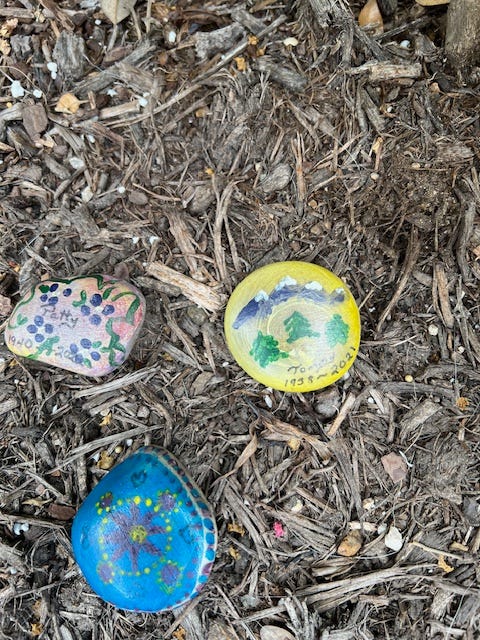
Last year, I created gratitude stones. Each was painted with a life-affirming word: Faith, Hope, Joy, Grace, Beauty. On January 1, my husband and I hike to welcome in the new year. It’s become a tradition. This year, we decided to gather up the gratitude stones I’d painted. We brought them on our New Year’s Day hike, leaving them along the trail—little offerings of goodwill for people to find. It was a ritual of love and connection, a way of sharing goodwill with our community.
Rituals create meaning. They help us mark the passage of time, honor our resilience, our joy and make sense of our inner world and our outer life.
Another ritual that grounds and nourishes me is to build earth altars in my garden, dedicating them to whatever is weighing on my heart, or what needs honoring. In doing so, I find clarity. I find peace, and I remember that I am not alone.
The truth I’ve come to in the past several days is that we are collectively grieving. The world feels heavy. But in daring to love, in creating art, in making space for ritual, we respond to suffering in a way that fosters meaning—and with meaning comes resilience.
You are in my heart, dear reader and we are in this together.
Stay strong. Create beauty. Trust the voice of your soul.
~Stephanie
What rituals can you make that will address the grief and the grace of these historic times?
How do loving relationships give you strength in the face of adversity?
Sometimes meaning does not reveal itself right away, but how we wait for that ah ha moment has value as well. How do you honor the quiet waiting in your life? Do you walk in nature, take a hot bath, meditate or sing?
Please share your thoughts and let’s have a conversation!
A CALENDAR FOR ACTIVISM AND ADVOCACY.




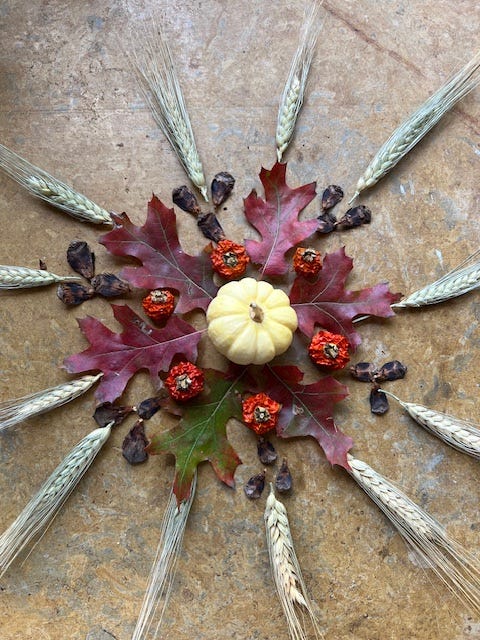
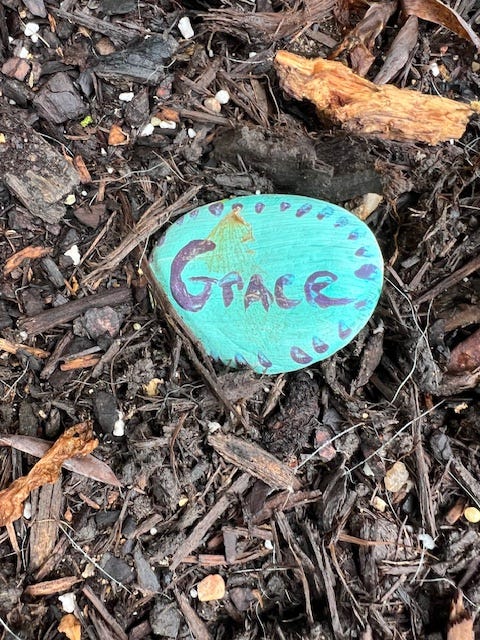
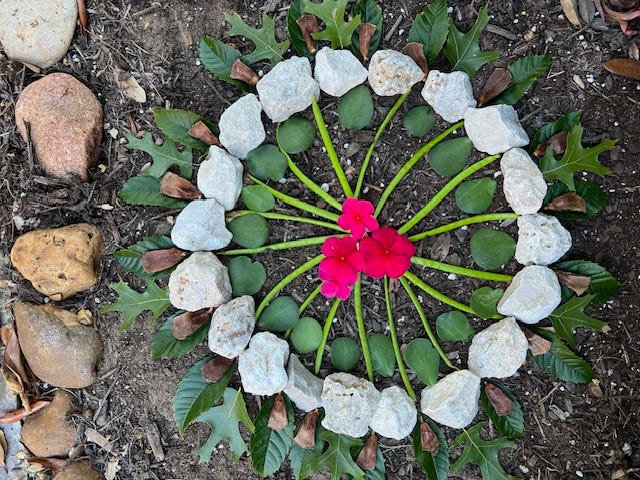
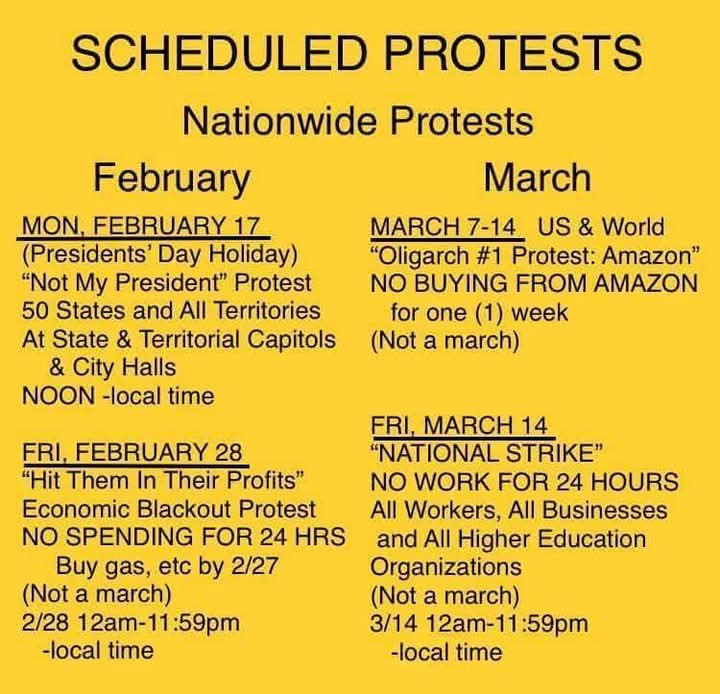
In 2022, our daughter's family was supposed to travel to Disney World with an organization called Kidd's Kids out of Dallas. Tragically, our granddaughter, Evie died before we could take the trip. The organization sent my daughter's family anyway. She took stones painted with Evie's name, and we hid them in the bushes at Disney World. I'm sure the groundskeepers moved them, but we felt like Evie got to go to Disney World in our hearts with the physical placing of the stones. Thanks for the post. It was lovely.
Thank you for writing about grief. I’ve had the same subtle thought that I am feeling grief underneath everything I am witnessing in my country right now.
Thank you for acknowledging the grief we all share in these hard times.